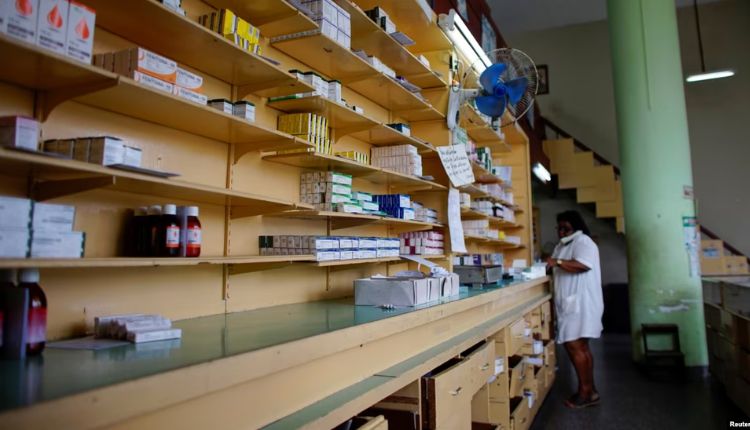In Cuba, access to medicine is deeply tied to the country’s public health philosophy, which prioritises affordable health care for all. Pharmacies in Cuba are not just commercial establishments; they are integral extensions of hospitals, clinics and the national health infrastructure. Understanding how Farmacia Cuba works provides valuable insight into the Cuban approach to health, wellness, and medical access.
The structure of the Cuban pharmacy system
The Farmacia Cuba system is unique compared to many Western countries. Most pharmacies, known as “farmacias”, are state-owned and run by the government under the supervision of the Ministry of Public Health. These pharmacies fall into two main categories: pharmacies serving the public health system and pharmacies catering to tourists and individuals seeking imported products.
Public pharmacies provide drugs that are often manufactured domestically in Cuba. Many of these drugs are generic versions developed in the country’s research institutions. On the other hand, tourist pharmacies, known as “farmacias internacionales”, sell imported or branded medicines, often at prices in foreign currency. This dual system helps the government balance local supply while still meeting the needs of international visitors and Cuban residents who require specialty drugs.
Availability and affordability in Farmacia in Cuba
One of the most remarkable aspects of Farmacia Cuba is its accessibility. Medicines in Cuba are largely subsidised, meaning local citizens pay very little for basic medicines. This policy is based on the Cuban government’s belief that health is a basic human right. However, the country’s limited access to global pharmaceutical markets due to long-standing trade restrictions has affected the availability of some drugs.
Despite these challenges, Cuba has managed to maintain a reliable supply of essential medicines such as antibiotics, painkillers and vaccines. The national focus on preventive health care also reduces pressure on pharmacies, as many diseases are addressed through vaccinations and public health campaigns before they require pharmaceutical treatment.
Cuban Pharmaceutical Innovation and Research
Cuba is internationally recognised for its pharmaceutical research and innovation. The island has developed several breakthrough drugs and vaccines, many of which are distributed through the Farmacia Cuba network. The country’s biotech sector has produced notable successes such as the Heberprot-P drug used to treat diabetic foot ulcers and several cancer vaccines in development.
These innovations are the result of large government investments in science and education. Pharmaceutical production is mainly carried out by state-owned companies, which ensures that drugs remain affordable and widely available. Farmacia serves as the final link between these manufacturing facilities and the citizens who need the medicine the most.
Farmacia Cuba for tourists
For visitors to Cuba, it may be especially helpful to understand how Farmacia Cuba works. Tourists will find international pharmacies in major cities such as Havana, Varadero and Santiago de Cuba. These pharmacies offer common over-the-counter medications such as pain relievers, allergy relief, and digestive aids. However, due to Cuba’s limited imports, not every international brand may be available.
In general, travelers are advised to bring their own prescription medications in their original containers along with a copy of the prescription. Cuban pharmacists are well-trained and are often able to recommend suitable local alternatives when specific brands are not available. Tourists can also find natural or herbal remedies in many pharmacies that reflect the culture of traditional Cuban medicine.
The role of pharmacists in Cuban healthcare
Pharmacists in Cuba play a more community-orientated role than in many other countries. They are responsible not only for dispensing medicines but also for providing health education and advice in the field of preventive care. In rural areas, pharmacists often work closely with doctors and nurses to ensure that patients follow the correct treatment protocols.
Because of Cuba’s emphasis on public health, pharmacists undergo specialised training that includes both medical knowledge and community service. This ensures that Farmacia Cuba functions effectively as part of a larger healthcare network designed to promote health, not just treat disease.
Challenges faced by Farmacia Cuba
Despite its strengths, Farmacia Cuba faces several challenges. The ongoing trade embargo limits access to some raw materials and imported medicines. As a result, there may be a shortage of some medicines, especially for chronic diseases that require specialised treatment. In addition, economic constraints can affect the distribution and modernisation of pharmacies.
However, Cuba responded to these difficulties with innovation. The country’s biotech sector continues to produce high-quality generic drugs, and international collaborations with countries such as China, Russia and Venezuela have helped improve drug supply. Farmacia resilience shows how the state-run healthcare model can adapt to global pressures.
Growing popularity of Farmacia online services
The concept of Farmacia Cuba online platforms has gained attention in recent years, especially among Cubans living abroad. These services allow expatriates to purchase and send medicine or health products to family members in Cuba. Although these online pharmacies are not officially run by the government, they work with local distributors to deliver legitimate products on the island.
These digital services have made it easier for families to support each other across borders, especially in times of medical need. However, users must ensure that they purchase from verified and trusted websites to avoid fake or unapproved products.
The Future of Pharmacy in Cuba
The future of Farmacia Cuba looks promising as the nation continues to prioritise healthcare innovation. Government investment in biotechnology and medical research is expected to expand the range of medicines available. Additionally, with increasing digitalisation, the integration of e-pharmacy systems could improve accessibility for both local residents and tourists.
If Cuba manages to overcome its economic barriers and further develop partnerships with international organisations, Farmacia could become a model for affordable and fair distribution of medicines around the world.
Wrapping It Up
Farmacia Cuba is a symbol of Cuba’s ongoing commitment to universal health care. Despite economic challenges and limited international trade, the country has built a pharmacy system.
Its emphasis on accessibility, research, and preventive medicine has made healthcare a shared national achievement. For both locals and visitors, Farmacia represents not just a place to buy medicine but a cornerstone of Cuba’s compassionate approach to public health.
FAQs
What is Farmacia?
Farmacia Cuba refers to the network of pharmacies in Cuba that provide essential medicines and health services under the government’s public healthcare system.
Can tourists buy medicine from Farmacia?
Yes, tourists can purchase medicines from international pharmacies located in major Cuban cities. However, they should carry their own prescriptions and medications when possible.
Are medicines expensive in Cuba?
For Cuban citizens, medicines are heavily subsidized and very affordable. Tourists may pay higher prices in international pharmacies that sell imported products.
Is there an online Farmacia service?
Yes, some online services allow people to order and send medicines to Cuba, but it is important to use verified platforms to ensure authenticity.






